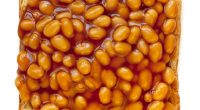People who drink a can of diet pop every day are more likely to develop long-term cardiovascular problems compared to those who do not drink them, latest evidence suggests.
Scientists from Shanghai Jiao Tong University School of Medicine have found that people who drink seven cans of diet pop per week are 20% more at risk of developing atrial fibrillation – a condition that causes an irregular and often fast heartbeat.
Thousands of people in the UK and US are affected by the heart condition, including the American president, Joe Biden.
Prior research from the World Health Organization has found that the sweetener in Diet Coke, aspartame, can in some cases cause cancer.
First author Dr Ningjian Wang said: “Our study’s findings cannot definitively conclude that one beverage poses more health risk than another due to the complexity of our diets and because some people may drink more than one type of beverage.
“However, based on these findings, we recommended that people reduce or even avoid artificially sweetened and sugar-sweetened beverages whenever possible.”
Dr Wang added: “Do not take it for granted that drinking low-sugar and low-calorie artificially sweetened beverages is healthy, it may pose potential health risks.”
During the study, the team of researchers followed 201,856 adults from the UK Biobank between 2006 and 2010.
They measured the participant’s genetic risk for atrial fibrillation by examining samples of their blood. Each participant also filled in diet surveys to outline their food intake.
The results show that the participants who drank at least two litres of fizzy diet drinks were 20% more at risk of being diagnosed with atrial fibrillation.
Meanwhile, the participants who drank a minimum of two litres of sugar-sweetened beverages were 10% more at risk of developing the heart condition, the study has reported.
In addition, the findings have revealed that the participants who drank one litre or less of pure fruit juice were 8% less at risk of developing atrial fibrillation.
The authors said: “Participants who consumed more artificially sweetened beverages were more likely to be female, younger, have a higher body mass index and a higher prevalence of type 2 diabetes.
“Participants who consumed more sugar-sweetened beverages were more likely to be male, younger, have a higher body mass index, a higher prevalence of heart disease and lower socioeconomic status.”
Dr Wang stated: “These novel findings on the relationships among atrial fibrillation risk and sugar – and artificially sweetened beverages and pure juice may prompt the development of new prevention strategies by considering decreasing sweetened drinks to help improve heart health.
“Although the mechanisms linking sweetened beverages and atrial fibrillation risk are still unclear, there are several possible explanations, including insulin resistance and the body’s response to different sweeteners.”
The researchers said: “The limitations of this study include that the findings were observational and cannot prove causation between consumption of certain types of beverages and atrial fibrillation risk.
“In addition, the findings relied on participants to recall their own diets, so there may have been memory errors or bias. It is also unknown if the sugar- and artificially sweetened drinks contained caffeine.”
Gavin Partington, Director General of the British Soft Drinks Association, said: “As the authors of this study themselves admit, this is observational research which, firstly, cannot prove cause, and which, secondly, involves data that could be subject to memory errors or bias from the participants.
“All soft drinks, whatever their ingredients, are safe to consume as part of a balanced diet, not least fruit juice, a 150ml portion of which counts as one of your five a day.”
Victoria Taylor, Senior Dietitian at the British Heart Foundation, said: “As this type of study is observational it can only show us associations, not causation. We’d need more research and different types of studies to have a definitive answer.
“We already know that diets high in sugar are linked to high calorie diets which can cause weight gain and obesity.”
She continued: “In turn, this increases the chances of developing type 2 diabetes and heart and circulatory diseases.”
Dr Duane Mellor, Registered Dietitian and Senior Lecturer at Aston University in the UK, said: ‘This study claimed to find that individuals who drank more than 2L per week had an increased risk of atrial fibrillation.
“However, the data this was based upon was only five separate single day food intake recalls which were taken over the first three years of the study, so this data had to be extrapolated to estimate weekly intake.”
Dr Mellor added: “Although there is an increased risk, there is limited explanation of how sweeteners might increase risk of atrial fibrillation, so there is a limited biological reason to explain how sweetened drinks could be linked to heart health.”
Read the study in the journal Circulation: Arrhythmia and Electrophysiology.







